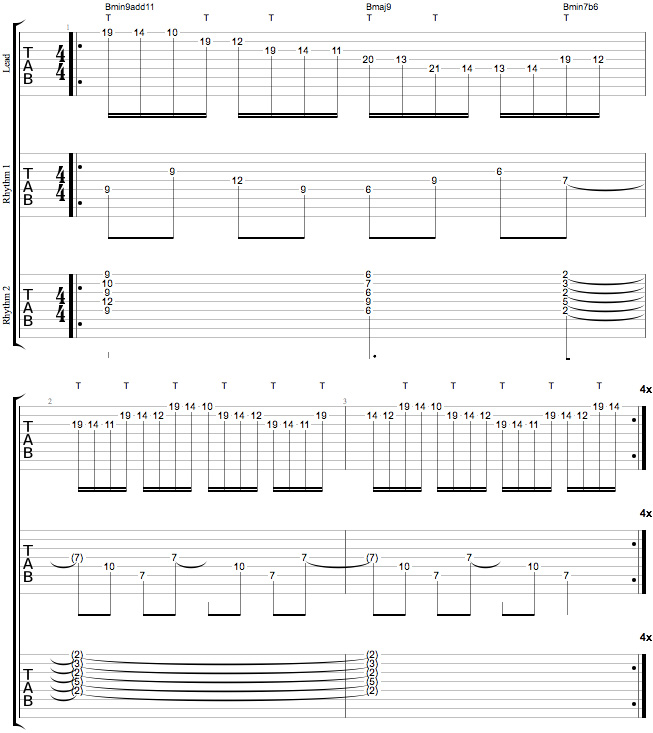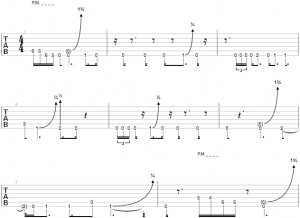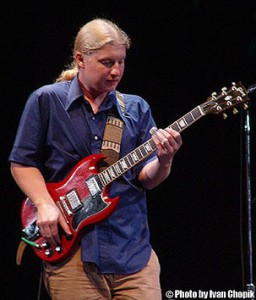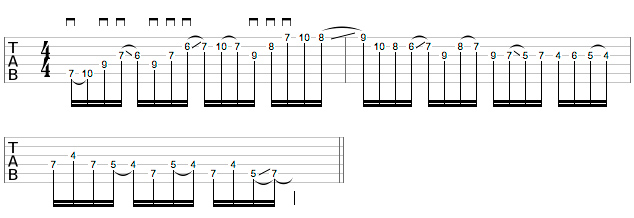Welcome to Guitar Messenger! I’m Nick from the band Ever Forthright. Today we’re going to use excerpts from two of our recent songs, ‘The Counter Shift‘ and ‘Dispose Of Your Optimism‘, to demonstrate how you can use jazz harmony and concepts in modern progressive metal. All examples are played on an 8-string in standard tuning: F# B E A D G B E
Passing Tones – The Counter Shift 1:43:
This section is a great example of using passing tones (labeled PT in the tabs) to connect chords in a riff or progression. This section is pretty much a ‘techy’ take on the same progression that happens in this song at 3:15. It’s based around a progression that was really jazz, or even hip-hop/R&B influenced (especially the Dbmin7b6 to the Ebmin7b6). With the exception of the first two chords (Gmin to Ebmaj), this progression is very modal.
This riff also uses several passing tones in some of the lines connecting the chords – in other words, notes that normally don’t apply to that chord or its corresponding scale. A good way to apply this method is to resolve chord tones on downbeats and have ‘wrong notes’/passing tones on off beats. It’s a great way to break away from the usual scales and apply all 12 notes to any chord.
The Counter Shift 1
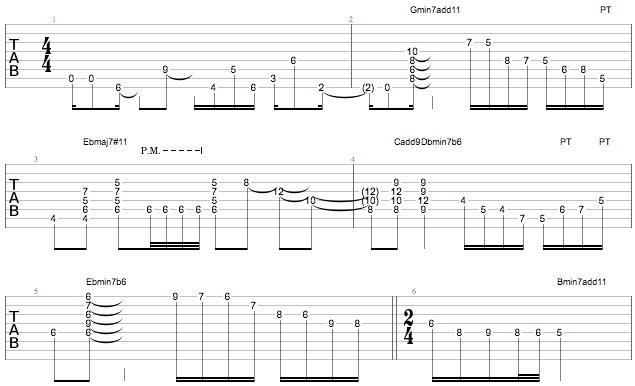
Modal Tapping – The Counter Shift 3:15:
In this example, we learn to apply multi-finger tapping to a modal progression. This is the same progression that recurs throughout the song, but this time every chord is given a chance to stand out. The tapping in this section applies multi-finger tapping with the right hand, and pulling off to open strings with the left hand.
Those two techniques combined give the line a fairly large range of notes and also a large range of timbre, because tapping, picking, hammering on, pulling off, hammering on from an open string, pulling off to an open string, etc. all create different timbres. What I really like about this line is that it applies those different techniques and sounds to a modal progression instead of your standard eight bars of A minor.
The Counter Shift 2
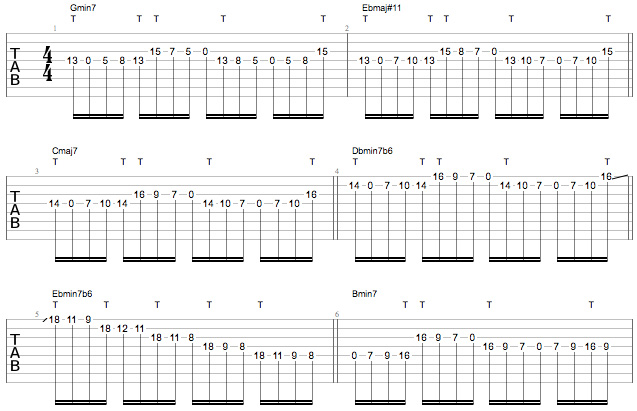
Open String Diminished – Dispose of Your Optimism 1:54:
Here’s a long way of playing ‘V-I’ using a diminished chord. Having a diminished chord resolve up a half step is probably the most used progression in music, so harmonically nothing crazy is going on here. What I like about this riff is the chaotic use of the B whole-half diminished scale using open strings. On an 8-string guitar, with the exception of the open F# and A strings, all of the open strings are in this scale (I use the open A string in this riff anyway. Why?…. Why not?).
Also, In the following chord (Cmajor7#11), all of the strings including the F# and A are in the C Lydian scale. So this riff was a perfect opportunity to go open-string crazy. I like to use open strings because they have a cool timbre – six out of the twelve possible notes are incredibly easy to get to (on an 8-string), and they allow guitarists to play lines and licks that would be impossible on most other instruments.
Dispose Of Your Optimism 1
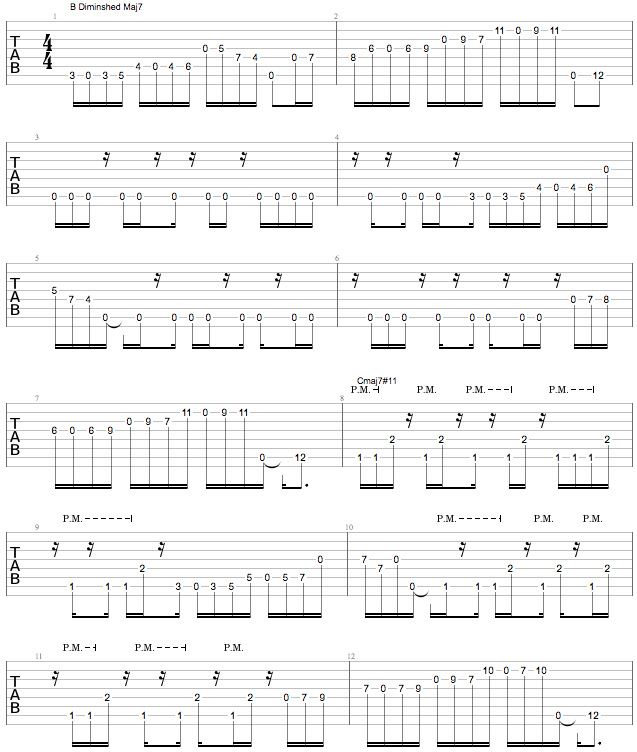
Minor-Major-Minor – Dispose of Your Optimism 6:50:
Here’s a way to add interest to the classic technique of going from minor to major and back again. This is definitely one of my favorite lines, and thankfully it’s super easy to play. It sits right on top of the chorus, which is Bmin9add11-Bmaj9-Bmin7b6. That sounds like a lot, but it’s just a fancy way of saying Minor-Major-Minor. Even though the guitar voicings are doing their own thing, it’s all just sitting on a B pedal tone.
There are no sixths played in the first minor chord, so there is nothing that places it in either the Aeolian mode or Dorian Mode (I consider Phrygian to be a separate type of sound, although technically it is minor) and there are no elevenths played on the major chord so there is nothing defining it as Lydian or Ionian. This is why I like the resolution so much on that last minor chord – it has that b6 in it and really gives off a heavy vibe. I didn’t put the b6 in the tapping line because I feel it would have been too much for that specific spot, but it’s there in the background being played by one of the rhythm guitars.
Dispose Of Your Optimism 2
